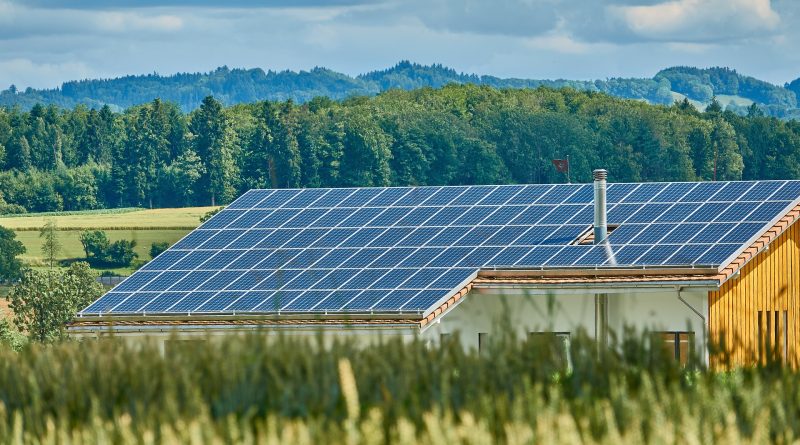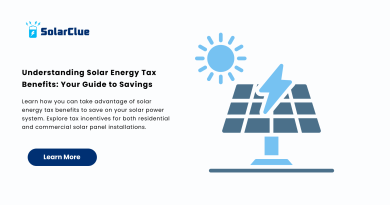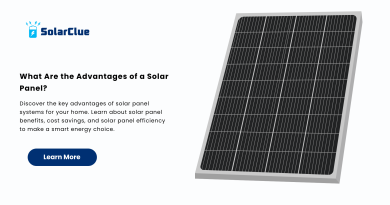Building Solar Panel Installation Cost: Affordable Solutions
Solar energy has emerged as a viable and sustainable solution to the impending energy crisis that our planet faces. As the cost of traditional energy sources continues to rise, many individuals and organizations are turning to solar panels to meet their energy needs. However, a common consideration before installing solar panels is the cost involved. In this blog, we will explore the various factors that affect the cost of installing solar panels in a building, providing you with the necessary information to make an informed decision.
Table of Contents
Factors Affecting the Cost
When it comes to installing solar panels, the costs involved vary depending on several factors. Understanding these factors is essential in determining the overall cost and feasibility of installing solar panels for your building.
1. Size of the System
The size of the solar panel system required for a building plays a significant role in the overall cost. The larger the system, the more expensive it tends to be. The size depends on various aspects such as the building’s energy consumption, available roof space, and the desired energy output. A larger system would require more solar panels and additional components, resulting in higher upfront costs.
2. Quality and Type of Solar Panels
Solar panels are available in various qualities and types, each offering different levels of efficiency and durability. High-quality solar panels usually cost more but provide a greater return on investment over time. Factors such as the efficiency of the panels and their ability to tolerate extreme weather conditions can significantly impact the final cost. It is crucial to choose panels that align with your specific requirements and budget.
3. Installation Complexity
The complexity of the installation process can affect the cost of solar panel installation. A straightforward installation on a flat roof with easy access tends to be less expensive compared to installations involving complicated roof structures or extensive wiring requirements. Additionally, the distance between the installation location and the nearest electrical grid connection can impact costs. Difficult installations often require additional labor and materials, resulting in increased expenses.
4. Incentives and Rebates
In many regions, governments encourage the adoption of solar panels by offering various incentives and rebates. These can include tax credits, cash grants, and subsidies that reduce the upfront cost of installation. Taking advantage of these incentives can significantly reduce the overall cost of installing solar panels for a building. It is essential to research and understand the available incentives specific to your location.
5. Maintenance and Operational Costs
While the upfront cost of installing solar panels is an important consideration, it is also crucial to factor in the maintenance and operational costs involved. Regular maintenance, such as cleaning and ensuring optimal performance, can contribute to the long-term efficiency of the solar panel system. Additionally, the cost of energy storage solutions, such as batteries, should be considered if the building requires backup power during periods of low solar energy generation.
Conclusion
Embark on a journey to affordable clean energy with SolarClue®—your dedicated guide for building-integrated solar panel installations. Understand the cost-effective benefits and environmental impact of transitioning to solar power. Assess factors influencing installation costs, optimize your building-integrated solar setup with expert assistance, and choose the right capacity for your needs. SolarClue® helps navigate financing options, subsidies, and incentives, ensuring affordability. Obtain permits smoothly, learn maintenance insights, and stay informed about local market trends for maximizing returns. Join our community, share experiences, and transition to cleaner, sustainable energy with SolarClue®. Start your building-integrated solar journey today!
Frequently Asked Questions
SolarClue® helps property owners understand the cost-effective benefits and environmental impact of building-integrated solar panels, emphasizing reduced electricity bills, sustainability, and long-term savings.
SolarClue® assists property owners by explaining factors influencing building-integrated solar panel installation costs, helping them assess and optimize these factors for an affordable and efficient solution.
SolarClue® guides property owners in choosing the right capacity and type of building-integrated solar panels by considering energy needs, providing a customized solution that fits their budget, and promotes clean energy adoption.
SolarClue® provides resources to help property owners explore financing options, subsidies, and incentives, making their building-integrated solar panel installation more affordable and financially viable.
SolarClue® guides property owners through the building-integrated solar panel installation process, ensuring a seamless and cost-effective setup with step-by-step assistance for clean energy generation.
SolarClue® offers insights into maintenance requirements for building-integrated solar panels, educating property owners on caring for their installations for long-term efficiency and affordability.
SolarClue® supports property owners by providing information on the regulatory landscape, assisting in obtaining necessary permits for building-integrated solar panel installations, ensuring compliance with local guidelines, and facilitating a smooth process.
SolarClue® provides information on potential energy savings and ROI, assisting property owners with calculations and strategies to maximize the benefits of investing in building-integrated solar panels.
SolarClue® fosters a community where property owners share experiences with building-integrated solar panels, creating a supportive space for learning, troubleshooting, and advice to enhance the overall clean energy transition.
SolarClue® provides additional tips and best practices to property owners, ensuring they make well-informed decisions and optimize their building-integrated solar panel investments for maximum affordability, efficiency, and sustainability.




